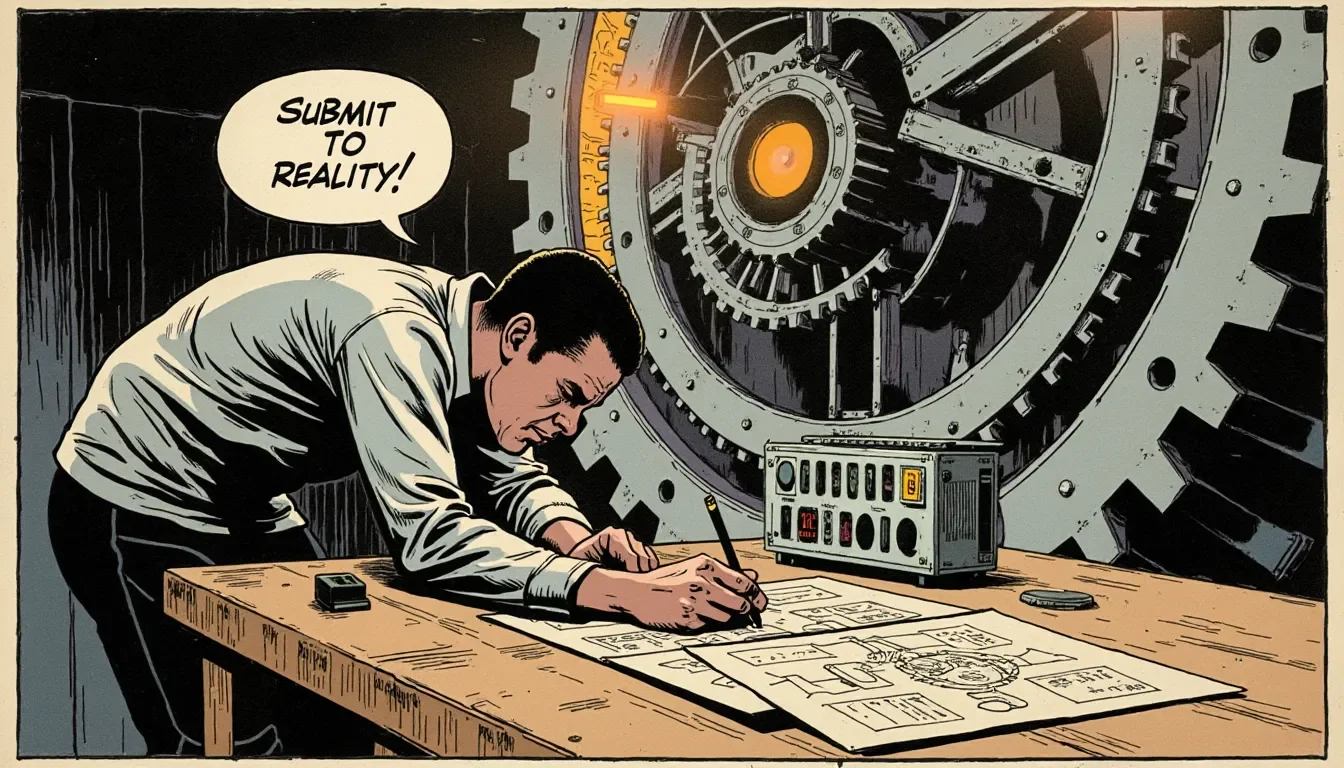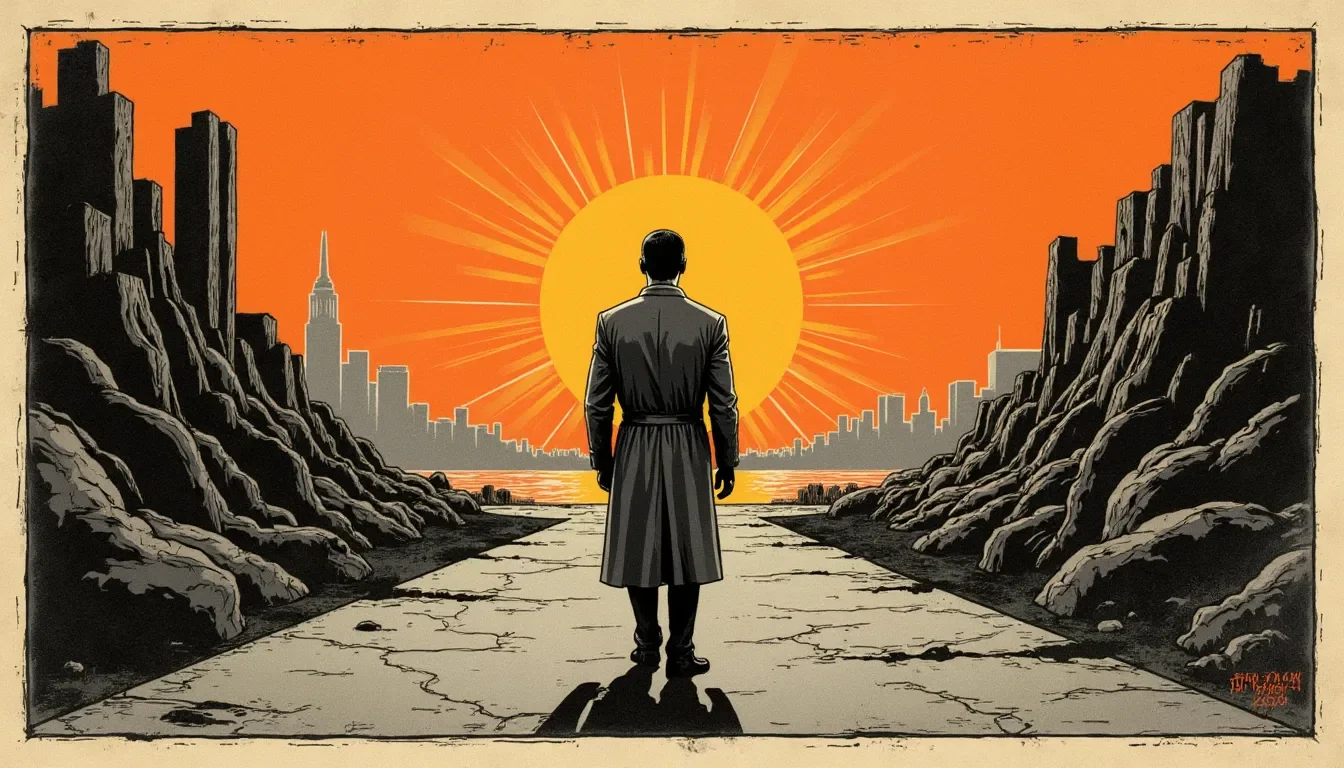
T H E W A R C H E S T
Between Blade and Book. Lessons from the Labyrinth
The Strategist's Scroll. Unpack the timeless nexus of warfare, philosophy, and power dynamics through the lens of Robert Greene 's enduring insights. This blog explores how strategic thinking, human nature, and intellectual wisdom converge on the battlefield of life, from ancient conflicts to modern influence.
The Trap of Innocence
Unlock the strategic power of The Natural archetype from Robert Greene's The Art of Seduction and discover how innocence is weaponised in social dynamics. This analysis explores the philosophy of human nature and the psychological warfare behind vulnerability, offering essential insights for students of strategy….
The Art of Insolence
Optimised Description: Explore the psychological depth of Robert Greene’s The Art of Seduction and the strategic power of the Dandy archetype. This analysis dives into the philosophy of ambiguity and social warfare, offering historical insights for those seeking to master the dynamics of power and influence.
The Illusionist of the Heart
This article delves into Robert Greene's "Ideal Lover" archetype from The Art of Seduction, offering a philosophical and strategic analysis of how this master seducer taps into unfulfilled dreams and aspirations. Explore the intricate psychology and historical applications of this powerful strategy, perfect for those….
The Rake
This article delves into Robert Greene's "The Art of Seduction," specifically exploring the enduring archetype of The Rake. Discover the philosophical underpinnings and strategic brilliance behind this master of desire, offering insights for individuals interested in philosophy, strategy, and deepening their understanding of…..
The Siren
Dive deep into the compelling world of Robert Greene's "The Art of Seduction" as we unravel the mesmerising archetype of the Siren. Discover how this powerful figure, through psychological mastery and strategic allure, has historically captivated and controlled, offering vital insights for those interested in philosophy…..
The Unforgiving Ascent to Mastery
Dive deep into the relentless pursuit of human mastery with strategies from Robert Greene, exploring how true experts fuse intuition with rational thought. This comprehensive guide, steeped in philosophy and military strategy, reveals the secrets to cultivating unparalleled skill and achieving your full potential…..
The Brutal Harvest
Unlock the secrets of genuine mastery and strategic brilliance through the profound insights of Robert Greene's work, exploring the philosophical underpinnings and military-grade strategies required to fuse intuition with rational thought. This article unveils the richness of timeless wisdom, perfect for those seeking to…..
The Unromantic Art of Mastery
Delve into Robert Greene's profound strategies for achieving creative mastery, moving beyond conventional wisdom to cultivate genuine genius through rigorous application. This exploration offers invaluable insights into the philosophy and strategic thinking required to forge your unique path, drawing parallels with…..
From Apprentice to Architect
Unlock the profound insights of Robert Greene's "Mastery" as we delve into the "Creative-Active" mind, exploring the critical "Second Transformation" from imitation to innovation. Discover how Robert Greene's philosophy illuminates the path to mastering your craft, drawing parallels with strategic principles…..
The Unblinking Eye
Dive into Robert Greene's Mastery Chapter 4, "See People As They Are: Social Intelligence," to unlock profound insights into human nature and strategic thinking. This deep dive offers a compelling exploration of Benjamin Franklin's journey from naiveté to social mastery, providing invaluable lessons for anyone interested in…..
The Art of Seeing
Unlock profound social intelligence and strategic influence with insights from Robert Greene's Mastery, exploring how Benjamin Franklin transformed from social novice to diplomatic genius. This article delves into human nature and leadership psychology, offering timeless wisdom for mastering the complex social…..
The Unseen Hand
Unlock profound insights into Robert Greene's philosophy of mastery and its strategic application through the mentor dynamic. This video explores how the principles of effective mentorship, often seen in the strategies of warfare and historical philosophical apprenticeships, are crucial for achieving true expertise and…..
The Enduring Paradox of War
Carl von Clausewitz's On War illuminates the fundamental paradox of conflict: while the theoretical "pure concept" envisions total annihilation of the enemy, actual warfare is a dynamic interplay of political objectives, resource constraints, and the psychological will to fight. Strategies often diverge from outright destruction…..
The Indispensable Hand
Robert Greene's Mastery, specifically pages 93-107 of Chapter 3, asserts that mentorship is essential for achieving true mastery, accelerating learning through intimate, disciplined engagement. It highlights the necessity of humility, the emotional and strategic dynamics between mentor and protégé, and the ultimate…..
The Crucible of Craft
Robert Greene's Mastery argues that the ideal apprenticeship is a five-to-ten-year self-directed journey focused on transforming character and mind through deep observation, intense skill acquisition, and calculated experimentation. He identifies eight strategies, exemplified by historical figures, for navigating this….
The Relentless Forge
Robert Greene's "Mastery" Chapter 2 argues that true expertise is cultivated through a rigorous "Ideal Apprenticeship" focusing on mental and character transformation, not quick gains. This process, exemplified by Charles Darwin's journey, comprises deep observation, relentless skill acquisition (tacit knowledge)…..
The Uncharted Path
Robert Greene’s "Mastery" outlines five brutal strategies for identifying and pursuing one's life's work, rejecting societal pressures and false paths. From reconnecting with primal inclinations to adapting to change and enduring existential crises, it posits that true mastery demands relentless graft, strategic….
The Inevitable Call
Robert Greene's "Mastery" asserts that true purpose, or a "Life's Task," stems from a primal, internal drive, urging individuals to reconnect with their innate inclinations despite external pressures. Abandoning this path leads to a "living death," and Greene offers five strategic manoeuvres—from returning to origins to radical….
The Unforgiving Craft
Mastery, as detailed by Robert Greene, is not an innate gift but a rigorous, attainable process crucial for navigating a complex future. It begins with a challenging apprenticeship, progresses through creative experimentation, and culminates in a profound intuitive understanding of one's domain, rooted in humanity's primal….
The Whispers of Chaos
Terrorism, far from conventional warfare, is a psychological strategy aimed at sowing chaos and uncertainty within a society. By leveraging fear and exploiting collective vulnerabilities, small groups can disproportionately impact powerful nations, turning perceived strengths into weaknesses. Effective…..



















